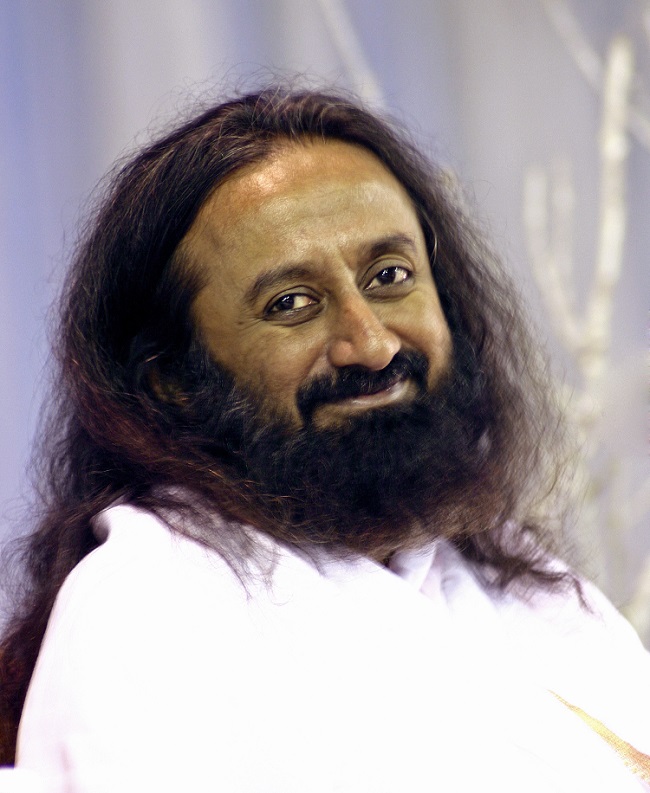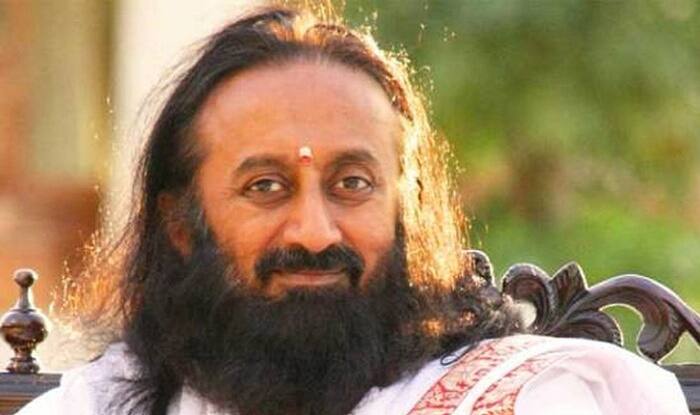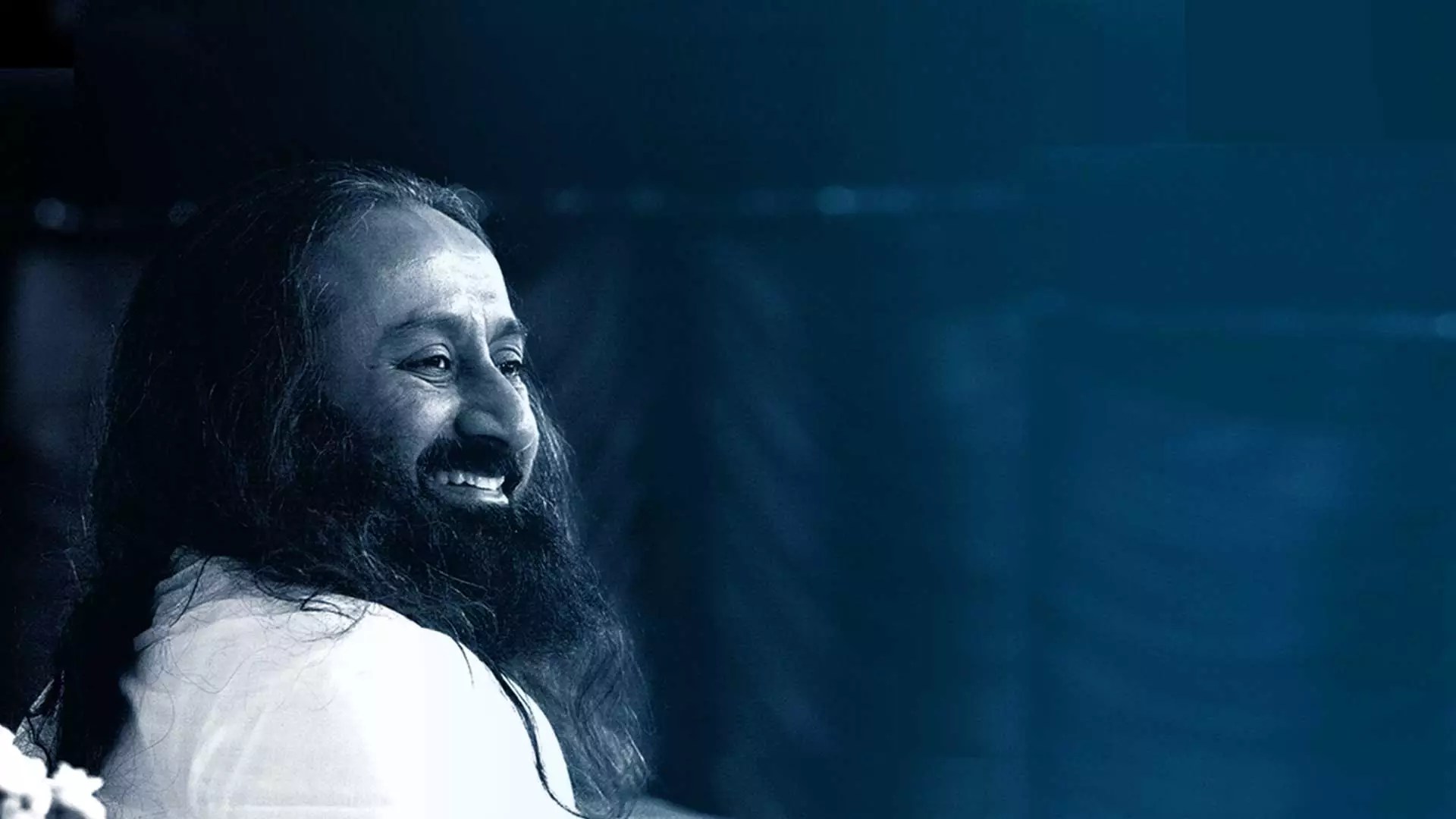India’s most popular wellness and spiritual guru’s book has words he has said for more than three decades. It is a virtual eye opener.
Sri Sri Ravi Shankar’s recently published tome, An Intimate Note: To The Sincere Seeker, is flying off the bookshelves like freshly baked thin crust pizzas, hundreds want to know from India’s most popular spiritual and wellness guru how to reorient their lives. They have job losses to handle, and then there is the return of Covid in a milder form. And everyone wants an answer from Sri Sri Ravi Shankar. It is not physically possible, the book has some very interesting answers.
For many decades, Sri Sri Ravi Shankar has explained why modern, urban life would lend itself to his form of breathing and meditation. He has impressed upon millions across the globe why it is important to rejuvenate physically, mentally and emotionally. He has explained why people who have a lot to do in life have a greater need to meditate. The New York Times once quoted him as saying on his first visit to Times Square in New York in April 2011: “When you live in the middle of this hustle-bustle, and you have a lot of responsibilities and demands on you, you naturally have a greater longing for it.”
“It is important for people to take a few minutes every day to sit with their eyes closed and look for inner peace,” the daily quoted Sri Sri Ravi Shankar as he walked up Broadway. “You need a source of silence and sanity and it is healthy to clear the mind,” he said.
“It gives you a deeper rest than sleep,” Sri Sri Ravi Shankar said. It adds dimension to your life, and it is so suitable for today’s busy life,” the daily quoted him saying.
The wellness guru founded the non-profit Art of Living (AOL) Foundation in 1982 to help spread the use of meditation to alleviate stress and societal problems and violence, conducting programs for people of all religions and cultures.
Sri Sri Ravi Shankar took a spiritual path early on, and by age 4 was able to recite from the Bhagavad Gita. Interestingly, he was born on the same day of the year as the Hindu philosopher Adi Shankara and followed the Maharishi Mahesh Yogi, developing a rhythmic breathing exercise to help relieve personal suffering. The technique came to him in 1982 “like an intuition” after a 10-day period of silence on the banks of a river in India. The technique, Sudarshan Kriya, has made it the core of his Art of Living courses.

The book is full of discourses and comments made by the spiritual and wellness leader. The book starts with comments offered way back in 1995 in California where Sri Sri Ravi Shankar talked about Just a Little Shift. “The event behind the event is knowledge. The object behind the object is infinity. The person behind the person is love. Maya or delusion is when you are stuck in events, personalities, or objects. Brahman — divine consciousness — is seeing beyond all these. See, just a little shift.”
I remembered having read a report in Newsweek where the wellness leader met up with Arthur Brooks, president of the American Enterprise Institute (AEI), a conservative think tank. An estimated 350 people crowded into AEI’s offices to watch Brooks and the Guru discuss spirituality and economy.
Brooks started with the spiritual questions. “What’s the secret to happiness?” he asked. “Just be yourself,” the wellness guru suggested.
Sri Sri Ravi Shankar was in a humorous mood. Americans struggle with stress, he noted, and he suggested they “go slow—drive behind a bicycle.” He laughed at his own joke, and everyone laughed with him.
“We need a society where people can pursue their own success, and at the same time they can understand their success as being beyond material things,” Brooks told Newsweek in a joint interview with Sri Sri Ravi Shankar before the main event Tuesday. “This is the reason that free enterprise and capitalism matter. It’s not to make us richer but to lift us up so that we can be in a position to be having more transcendent thoughts.”
“Devoid of humanism, capitalism collapses,” Sri Sri Ravi Shankar interjected, explaining his view that spirituality gives people the confidence to take responsibility for their own lives.
“I don’t see there is any conflict between capitalism and compassion,” the spiritual guru said. “Rather, capitalism can flourish well with compassion, and compassion can only happen with people who can afford to show compassion and do something about it.”
Later in the programme, Brooks summarised Sri Sri Ravi Shankar’s outlook as “so wealth is good, but we must underlie it with a sense of proper morality.” “Creation of wealth should always go along with distribution,” Sri Sri Ravi Shankar replied, using a word, distribution.
In 1998, Sri Sri Ravi Shankar — the book notes — told a gathering in Germany as a part of his new year message: “Be in touch with the source and make your life a celebration.”

The spiritual leader’s wisdom of secrets, which he talked about during his interactions with visitors at his expansive Bengaluru ashram, fits corporate India perfectly. “Trying to protect a secret causes anxiety and discomfort. An ignorant one is not comfortable with a secret, whether revealed or unrevealed, but the wise one is comfortable with a secret, whether revealed or unrevealed.”
Pages after pages the wellness and spiritual leader explained why it is important for people to stay calm to weather turmoil in life. Sri Sri Ravi Shankar delved deep into the issue of uncertainty, uppermost on the minds of people, especially post Covid-19.
He had, actually, talked about it almost two decades ago during a discourse at his ashram in Bengaluru (it was then called Bangalore): “You can be at ease with the uncertainty of the world when you realise the certainty of consciousness. Usually, people do just the opposite. They are certain about the things in the world and uncertain about God. They rely on something that is not reliable and get upset. Uncertainty causes craving for stability and the most stable thing in the Universe is the Self.”
He talked about it way back in 1999. We are into the start of 2022.
Sri Sri Ravi Shankar also talked about mistakes, which are common to almost anyone and everyone across the globe. Says the spiritual and wellness guru: “Mistakes keep happening all the time. Often you get irritated by them and want to correct them. How much can you correct? There are two situations when you correct others’ mistakes. You correct someone’s mistake because it bothers you. But even if you correct it, this does not work. You correct someone’s mistake not because it bothers you, but for their sake so that they can grow.”
“To correct mistakes, you need authority and love. Authority and love seem to be contradictory, but in reality they are not.”
Loads of anecdotes, drawn from the wellness and spiritual guru’s journeys across the world, makes this one a fascinating read, especially when the mind is in perpetual turmoil because of pandemic-led disasters which, in turn, had wrecked economies across the world.


